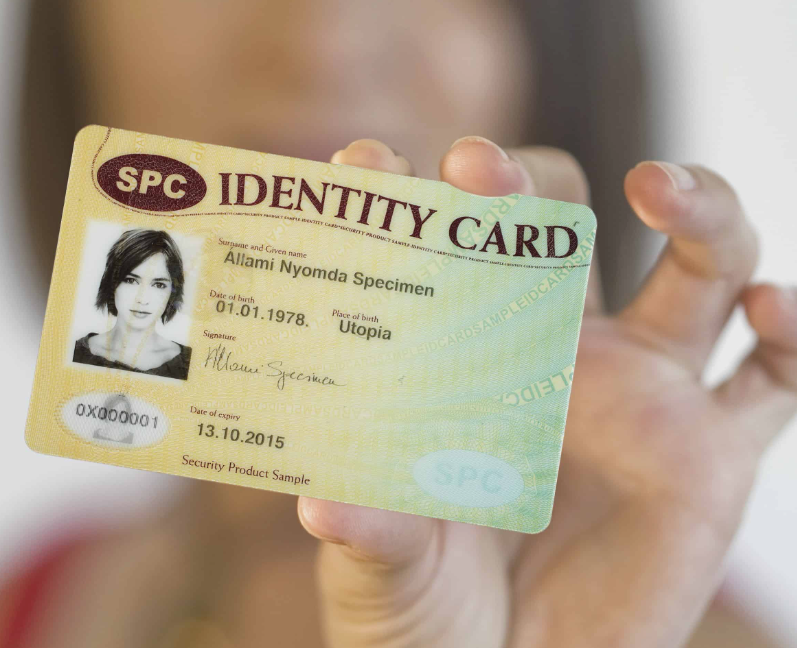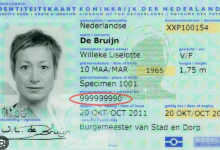In the Netherlands, every resident is assigned a unique identification number known as the Burgerservicenummer (BSN) or Citizen Service Number. This number plays a crucial role in various aspects of life, including access to healthcare, education, and employment opportunities. In this article, we will explore the process of generating a Netherlands Burgerservicenummer (BSN) and understand its significance.
The Dutch BSN (Burgerservicenummer) functions as a crucial identifier for individuals in the Netherlands. Government agencies, healthcare providers, educational institutions, and employers rely on it for precise identification and streamlined service delivery. Creating a BSN entails a systematic process, with specific documents and adherence to particular guidelines. A Dutch BSN generator can facilitate this process efficiently.
To apply for a Burgerservicenummer (BSN), individuals need to provide proof of identity and proof of address. These documents establish their residency and enable the government to assign a unique identification number. The application can be submitted at municipal offices or certain government agencies designated for this purpose.
The processing time for a BSN application may vary depending on the workload of the municipality. However, once the application is approved, individuals receive their BSN, which opens doors to various opportunities and benefits in the Netherlands.
If you happen to lose your Burgerservicenummer (BSN), don’t worry. There is a process in place to request a replacement. You will need to provide the necessary documentation and submit the request to the appropriate authorities. It is also important to update your records with relevant institutions, such as the tax authorities and healthcare providers, to ensure a smooth transition with the new BSN.
What is a Burgerservicenummer (BSN)?
The Burgerservicenummer (BSN), also known as the Citizen Service Number, is a unique identification number assigned to individuals residing in the Netherlands. It is an essential component of the Dutch identity system and serves as a means of identification for various administrative and governmental purposes.
The BSN is a 9-digit number that is assigned to every resident in the Netherlands, including Dutch citizens and foreign nationals. It is used by government institutions, healthcare providers, educational institutions, and employers to accurately identify individuals and access their personal information.
The significance of the BSN lies in its role in facilitating efficient and secure administration of various services and benefits. It enables individuals to access healthcare services, enroll in educational programs, apply for employment, and interact with government agencies.
Furthermore, the BSN plays a crucial role in maintaining the integrity and accuracy of administrative records. It helps prevent identity fraud, ensures accurate taxation, and facilitates efficient delivery of services to residents.
In summary, the Burgerservicenummer id number assigned to individuals residing in the Netherlands. It serves as a key identifier for administrative and governmental purposes, enabling individuals to access essential services and benefits in a secure and efficient manner.
Why do you need a BSN?

Having a Burgerservicenummer (BSN) is crucial for residents in the Netherlands due to its numerous benefits and essential role in various aspects of life. The BSN serves as a unique identification number that grants individuals access to essential services such as healthcare, education, and employment opportunities.
One of the primary reasons why a BSN is necessary is for accessing healthcare services. With a BSN, residents can register with healthcare providers, receive medical treatment, and access healthcare benefits. It ensures that individuals can receive the necessary care and support when needed, promoting overall well-being and ensuring timely medical assistance.
In addition to healthcare, a BSN is also vital for education purposes. It is required for enrolling in schools, universities, and other educational institutions. The BSN serves as proof of identity and residency, allowing individuals to access educational opportunities and pursue their desired academic paths.
Furthermore, a BSN is essential for employment opportunities in the Netherlands. Many employers require a BSN when hiring employees, as it verifies the individual’s identity and eligibility to work in the country. It is also necessary for tax purposes and ensuring compliance with employment regulations.
In summary, having a Burgerservicenummer (BSN) is indispensable for residents in the Netherlands. It provides access to crucial services such as healthcare, education, and employment opportunities. Whether it’s seeking medical assistance, enrolling in educational institutions, or pursuing a career, a BSN plays a vital role in facilitating these essential aspects of life.
| Benefits of having a BSN: |
|---|
| Access to healthcare services |
| Enrollment in educational institutions |
| Employment opportunities |
How to apply for a BSN?
To apply for a Burgerservicenummer (BSN) in the Netherlands, you need to follow a step-by-step process that involves gathering the necessary documents and submitting your application to the appropriate authorities.
Here is a detailed guide on how to apply for a BSN:
- Gather the required documents: Before applying for a BSN, you will need to gather certain documents to prove your identity and address. These documents typically include your passport or identity card, proof of address (such as a utility bill or rental agreement), and any additional documents required by the municipality.
- Complete the application form: Once you have gathered all the necessary documents, you will need to complete the BSN application form. This form can usually be obtained from the municipality’s website or in person at the municipal office.
- Submit your application: After completing the application form, you will need to submit it along with the required documents to the municipality. The exact submission process may vary depending on the municipality, so it is advisable to check their website or contact them directly for specific instructions.
- Attend the appointment (if required): In some cases, you may be required to attend an appointment at the municipal office to finalize your BSN application. During this appointment, your documents will be verified, and you may be asked to provide additional information if necessary.
- Receive your BSN: Once your application has been processed and approved, you will receive your BSN. This unique identification number will be essential for accessing various services and benefits in the Netherlands, such as healthcare, education, and employment opportunities.
It is important to note that the process of applying for a BSN may vary slightly depending on the municipality and individual circumstances. Therefore, it is recommended to consult the official website of your local municipality or contact them directly for the most accurate and up-to-date information.
Documents required for BSN application
When applying for a Burgerservicenummer (BSN) in the Netherlands, there are certain documents that you will need to provide as part of the application process. These documents are necessary to verify your identity and address, ensuring that the BSN is issued to the correct individual. Here are the specific documents that are typically required:
- Proof of Identity: You will need to provide a valid passport or identity card that clearly displays your full name, date of birth, and photograph. This document serves as proof of your identity and is crucial for establishing your eligibility for a BSN.
- Proof of Address: In addition to proof of identity, you will also need to provide a document that verifies your current address in the Netherlands. This can be a recent utility bill, bank statement, or rental agreement that clearly shows your name and address.
It is important to note that these documents must be original and not copies. They should be in Dutch, English, German, or French, or accompanied by a certified translation if in another language. Make sure to have all the necessary documents ready before submitting your BSN application to avoid any delays or complications.
Where to submit the BSN application?

When applying for a Burgerservicenummer (BSN) in the Netherlands, it is important to know where to submit your application. There are several locations and institutions where you can submit your BSN application, ensuring a smooth process and timely issuance of your unique identification number.
The primary place to submit your BSN application is at the municipal offices or gemeentehuis. These offices are located in various cities and towns across the Netherlands and serve as the main point of contact for residents regarding administrative matters. Municipal offices have dedicated departments that handle BSN applications and can guide you through the process.
In addition to municipal offices, certain government agencies also accept BSN applications. These agencies include the Immigration and Naturalization Service (IND) and the Tax and Customs Administration (Belastingdienst). Depending on your specific circumstances, you may need to submit your application directly to these agencies.
It is important to note that some institutions may require you to make an appointment before submitting your BSN application. This ensures that you receive proper guidance and reduces waiting times. It is advisable to check the official websites of the respective institutions or contact them directly to understand their specific requirements and procedures.
To summarize, you can submit your BSN application at the following locations and institutions in the Netherlands:
- Municipal offices (gemeentehuis)
- Immigration and Naturalization Service (IND)
- Tax and Customs Administration (Belastingdienst)
Make sure to research the specific requirements and procedures of each institution to ensure a smooth application process. By submitting your BSN application at the appropriate location, you can ensure that your unique identification number is issued efficiently and accurately
How long does it take to receive a BSN?
When applying for a Burgerservicenummer (BSN) in the Netherlands, it is important to understand the average processing time and the factors that may affect the duration. The processing time for a BSN application can vary depending on various factors, such as the workload of the municipality and the accuracy and completeness of the submitted documents.
On average, it can take around 4 to 6 weeks to receive your BSN after submitting your application. However, it is important to note that this timeframe is an estimate and may vary in individual cases. Factors such as the complexity of your application and any additional verification or investigation required can also impact the processing time.
The workload of the municipality is a significant factor that can affect the processing time. If the municipality is experiencing a high volume of applications, it may take longer to process each individual application. Additionally, peak periods, such as holidays or the start of the academic year, can also contribute to delays in processing times.
It is important to be patient during the BSN application process and to ensure that you have submitted all the necessary documents correctly. Incomplete or inaccurate applications may result in additional delays. If you have not received your BSN within the estimated timeframe, you can contact the municipality or the relevant authorities to inquire about the status of your application.
Overall, while the average processing time for a BSN application in the Netherlands is around 4 to 6 weeks, it is essential to consider the factors that may affect the duration, such as the workload of the municipality. By providing accurate and complete documentation and being aware of potential delays, you can help ensure a smooth and timely processing of your BSN application.
What to do if you lose your BSN?
What happens if you lose your Burgerservicenummer (BSN) in the Netherlands? Don’t panic! There are steps you can take to rectify the situation and ensure that you can continue accessing essential services and benefits. Here’s what you need to do:
1. Requesting a replacement BSN:
If you find yourself without your BSN, the first step is to request a replacement. You will need to gather the necessary documentation to support your request. This may include proof of identity, such as a valid passport or identification card. Once you have the required documents, you can submit your request to the appropriate authorities. They will process your application and issue you a new BSN.
2. Updating records with relevant institutions:
Once you have received your replacement BSN, it is crucial to update your records with relevant institutions. This ensures that your new BSN is linked to your existing accounts and services. Some of the institutions you may need to contact include the tax authorities, healthcare providers, and educational institutions. By informing them of your new BSN, you can ensure that your records are accurate and up to date.
Remember, losing your BSN can be an inconvenience, but it is not the end of the world. By following these steps and taking prompt action, you can quickly regain access to the benefits and services associated with your BSN.
Requesting a replacement BSN
Requesting a replacement BSN in the Netherlands is a straightforward process that requires certain documentation and submission to the appropriate authorities. If you have lost your Burgerservicenummer (BSN), it is important to take immediate action to ensure the continuity of your identification and access to essential services.
To request a replacement BSN, you will need to gather the necessary documentation. This typically includes proof of identity, such as a valid passport or identity card. Additionally, you may be required to provide proof of address, such as a recent utility bill or rental agreement.
Once you have gathered the required documents, you can submit your request for a replacement BSN. The application process can be completed at municipal offices or certain government agencies designated for this purpose. It is advisable to contact your local municipality or check their website for specific instructions and locations.
During the application process, it is essential to provide accurate and up-to-date information to ensure the smooth processing of your request. Any discrepancies or missing documentation may cause delays in receiving your replacement BSN.
After submitting your request, it may take some time to receive your new BSN. The processing time can vary depending on factors such as the workload of the municipality and the efficiency of the application review process. However, it is important to follow up on your request and stay informed about the status of your application.
Once you have received your replacement BSN, it is crucial to update your records with relevant institutions. This includes notifying the tax authorities, healthcare providers, and any other entities that may have your previous BSN on file. By updating your records, you ensure that your new BSN is recognized and used for future transactions and interactions.
In summary, requesting a replacement BSN in the Netherlands involves gathering the necessary documentation and submitting the request to the appropriate authorities. It is important to follow the application process carefully and provide accurate information. After receiving your replacement BSN, remember to update your records with relevant institutions to ensure the smooth transition to your new identification number.
| Documents required for BSN application: |
|---|
| – Proof of identity (valid passport or identity card) |
| – Proof of address (recent utility bill or rental agreement) |
Updating records with relevant institutions
After receiving a replacement Burgerservicenummer (BSN), it is crucial to update your records with relevant institutions to ensure a smooth transition and avoid any potential issues. Updating your records promptly is essential as it allows the tax authorities and healthcare providers, among other relevant institutions, to have accurate and up-to-date information about your new BSN.
One of the first institutions you should contact is the tax authorities. They rely on your BSN for various purposes, including income tax filings and social security contributions. By informing them about your new BSN, you can ensure that your tax records are updated correctly and that you continue to receive the appropriate benefits and services.
In addition to the tax authorities, it is essential to notify healthcare providers about your new BSN. Your BSN is linked to your healthcare records, and updating it ensures that you receive the necessary medical care and benefits without any disruptions. Whether it’s your general practitioner, specialist, or health insurance provider, informing them about the change in your BSN is crucial for seamless healthcare management.
Aside from tax authorities and healthcare providers, there may be other relevant institutions that require your updated BSN. These could include educational institutions, government agencies, and financial institutions. By proactively reaching out to these institutions and providing them with your new BSN, you can avoid any potential complications or delays in accessing services or benefits.
Remember, updating your records with relevant institutions is vital to maintain the accuracy and integrity of your personal information. It ensures that you can continue to enjoy the rights and benefits associated with your BSN without any interruptions or inconveniences.

